The content of the article
Flatulence can be considered an insignificant and not serious problem, because no one dies from increased gas formation. Indeed, flatulence does not threaten a person’s life, but can significantly impair its quality. Constant drilling and active removal of gases brings serious discomfort, not only physical but also aesthetic. Fullness, bloating, rumbling, discomfort, and often incidental situations can spoil the mood for a long time. To avoid such problems, you do not need to treat flatulence with neglect. In this article, we will talk about the causes of flatulence, consider the main medical and home methods of getting rid of bloating.
Reasons for increased gas formation
Flatulence is sometimes accompanied by unpleasant symptoms such as pain and colic in the abdomen, heartburn, nausea, belching. In rare cases, flatulence occurs against the background of the general weakness of the body, the person’s sleep and well-being changes, and his working capacity decreases. And all this is due to the increased air content in the intestines. According to statistics, absolutely every person suffers from periodic flatulence - this is normal. Flatulence occurs in 90% of cases of various diseases of the gastrointestinal tract. Normally, the permissible volume of gases in a healthy person is about 500-600 ml. With increased flatulence, which is usually caused by various diseases and disorders, this volume can reach three or even four liters.
Gases in the intestines come from various sources - we swallow air with food, gas is released from the blood. However, in most cases, these are gases that are produced during the fermentation of products, as well as substances that are released by bacteria during the fermentation and breakdown of food. Flatulence can be short-term or permanent, depending on the reasons that caused it. As a rule, increased gas formation is the result of a nutritional disorder or a consequence of various diseases.
- Binge eating. Very often bloating and excessive gas production is the result of banal overeating. A large amount of food simply does not have time to process, enzymes are not enough, as a result, the remnants of food provoke rotting processes in the intestines, which are necessarily accompanied by gas formation.
- Swallowing air. This is one of the most common causes of flatulence. Air ingestion can occur during meals, especially if a person is used to talking with a stuffed mouth. Air is swallowed during smoking - most smokers suffer from flatulence. A large amount of air enters the digestive tract, if a person is forced to constantly breathe through the mouth - this happens with ENT diseases (adenoids, rhinitis). People swallow air along with food when there are foreign objects in the oral cavity that cause discomfort - braces or dentures. Most of the swallowed air comes out with belching, however, 20-30% safely moves along the digestive tract, directly entering the intestines.
- Gas-forming products. We all know that some foods contribute to active fermentation processes. Among them are legumes, sauerkraut, muffin, fresh milk, carbonated drinks, pear, grapes, etc.
Hormones. Many women know that before the menstrual cycle begins, the abdomen begins to swell strongly, the effect of hormones affects. - Dysbacteriosis Healthy intestinal microflora contains a certain amount of beneficial bacteria that are involved in the breakdown and processing of food.With a lack of useful bifidobacteria and lactobacilli, food is not completely digested, it begins to ferment and rot in the intestine, flatulence increases, constipation or diarrhea occurs. Dysbacteriosis can be caused by malnutrition, food poisoning, but most often it is a consequence of taking potent antibiotics.
- Bowel obstruction. Sometimes narrowing of the intestinal lumen complicates the passage of gases and feces. Obstruction can occur due to physical obstruction - tumors, adhesions, foreign objects in the intestine.
- Slow intestinal motility. The large intestine consists of large and small folds, which are constantly compressed and unclenched, thus moving feces and gases to a natural outlet. And if intestinal perilstatics slows down, the gases accumulate in it, the stomach swells, and frequent constipation occurs. Intestinal motility can slow down due to a sedentary and sedentary lifestyle. Lack of fiber and the predominance of protein foods in food also slows down perilstatic.
- Stressful situations. In the intestine there are a lot of nerve endings that are sensitive to the psycho-emotional state of a person. Stresses, fears, anxieties and other experiences can lead to disruption of the intestines, as a result - constipation or diarrhea, bloating, flatulence, and even colic.
- Atmosphere pressure. When climbing mountains, the level of atmospheric pressure decreases, the gases in the intestine occupy a larger volume, flatulence and bloating occur.
- Gastrointestinal diseases. As noted, almost all diseases of the gastrointestinal tract are accompanied by bloating. Flatulence most often occurs against the background of gastritis, ulcers, colitis, pancreatitis, helminthic invasion, appendicitis, irritable bowel syndrome. Often bloating and gas formation occurs with celiac disease, when foods with gluten enter the food.
These are the main causes that can cause bloating, flatulence and flatulence. But often this problem affects not only the adult, but also the child.
Flatulence in infants of the first months of life
To alleviate the suffering of a child, a nursing mother should try to limit the intake of feeds. Ensure that the baby is correctly applied to the breast - the whole areola of the nipple should fall into the mouth, there should be a vacuum between the baby’s chest and mouth. Try not to take too long breaks between feedings, feed the baby on demand, this will eliminate greedy sucking and swallowing food with air. After eating, try to keep the child upright for a while. This will allow the burping to come out. Be sure to lay the baby on the tummy to improve bowel motility. And try not to use dummies - they also contribute to swallowing air. In difficult cases, when the baby is constantly crying, you can use special baby drugs that have a carminative effect. The simplest, most effective and safest home remedy for colic is dill water. Increased gas formation will gradually pass, you just need to wait for two to three months of crumbs.
Drug treatment of flatulence
Very often people with increased gas production do not go to the doctor, considering this a serious and delicate problem. But there is nothing to be shy about - sometimes minor appointments and nutritional correction can prevent the development of a serious disease. If you suffer from flatulence, be sure to visit a gastroenterologist or at least a therapist. Your doctor may prescribe a series of diagnostic procedures to make a diagnosis.
First of all, this is palpation of the abdomen, the doctor does this on his own. It determines the localization of bloating, intestinal hardness, muscle tension and other factors that can talk about various pathologies. A general blood test is required, in some cases a biochemical blood test. This will help to detect the presence of infectious diseases or inflammatory processes. You may also need a coprogram - this is a detailed analysis of feces. Bacteriological culture of feces will help identify pathogenic bacteria, if they eat, as well as their sensitivity to various antibiotics. Ultrasound of the abdominal cavity will help to identify the presence of possible adhesions, tumors and other formations in the digestive tract. Sometimes the patient is prescribed a radiography. First you need to drink a solution of barium sulfate. This substance settles on the walls of the intestine so that on the x-ray the structure and shape of the intestine becomes clearly noticeable. All of these studies help the doctor make an accurate diagnosis. If flatulence occurs against a background of another disease, treatment is aimed at suppressing the underlying pathology. It is possible to cope with flatulence with the help of the following medications.
- Sorbents. This is the easiest, but one of the most effective means in the fight against flatulence. Sorbents perfectly absorb and remove various toxins, waste products, gases and microbes from the body. Among them, one can distinguish Polysorb, Filtrum, Activated Carbon, Enterosgel, Smecta, etc. Drugs should be taken taking into account body weight, a couple of hours after a meal or an hour before a meal.
- Defoamers. These substances act on the surface of gas bubbles, swallow them and remove gases out naturally, alleviating the feeling of discomfort and bloating. Among the most effective are Espumisan, Infakol, Colicidum, Bebinos, etc. A lot of the funds in this group are intended for children in the first days of life to cope with colic and bloating.
- Prokinetics. These are drugs that perfectly affect the work of the intestine, enhance its motility, promoting fermenting feces and gases to the exit. Many of them also have an antiemetic effect. Among the powerful prokinetics, Tserukal, Motilium, Osetron, etc. can be noted.
- Enzymes. This group of drugs is especially useful for overeating, since in this case increased gas formation is caused by a lack of enzymes and rotting undigested food. Enzymes are the secret of the pancreas that helps break down fats and fiber. The most popular enzyme preparations are Mezim, Pancreatin, Festal, Creon, Penzital, etc.
- Antispasmodics. Sometimes the gases in the intestines cause a spasm, to get rid of the pain, you can take Papaverine or Noshpa.
These are the basic, simplest and safest means that will help suppress flatulence in the intestine. Remember that with regular bloating, self-medication can be dangerous, since you quench the symptom, but do not know about the underlying disease. After diagnosis, the doctor may prescribe other drugs, for example, for gastritis, in addition to adsorbents, antacids and, possibly, antibiotics will be needed; with helminthic invasion - anthelmintic drugs, etc.
How to get rid of bloating at home
If flatulence is not accompanied by other serious symptoms, you can try to cope with it yourself.
You need to eat fractionally - every 3-4 hours, but in small portions.So enough enzymes to digest a small amount of food. Bulk servings and frequent (less than three hours) snacks lead to fermentation of food in the intestine.
You need to chew food thoroughly with your teeth in order to facilitate the work of enzymes.
You can not talk while eating - so you swallow a large amount of excess air.
It is better to eat food in a warm form - neither cold nor hot.
Prefer healthy cooking methods - stewing, baking, steaming. Fried food takes much longer to digest, it requires a lot of enzymes to process.
You can get rid of flatulence with the help of home recipes. The most effective natural remedies include broth of dill, caraway seeds, fennel, chamomile and mint.
Fresh fruits and vegetables should be eaten separately from the main meal - no earlier than 2 hours after eating. Otherwise, such a mix will lead to increased gas formation.
Eliminate foods that cause increased flatulence from your diet. These are legumes, heavy meats (pork and lamb), barley, sweet pastries, fresh bread, dairy products (except dairy), cabbage, tomatoes, grapes, pear, gooseberries, raspberries, dates, radishes, sorrel, spinach, mushrooms. You should also abandon alcohol and carbonated drinks. Do not chew gum - it helps to swallow air.
Be sure to add foods that enhance perilstatics to your diet - sour-milk products, yesterday’s wholemeal bread, baked fruits and vegetables, buckwheat, millet. Eat light meats that are quickly digested - it's a rabbit, chicken, turkey.
Try to prevent constipation - eat laxative foods, drink plenty of clean water, take medications with beneficial bacteria as needed, and don't take antibiotics without a doctor’s prescription.
Try not to be nervous so as not to impair intestinal function.
Smokers should give up a bad habit, especially should not smoke during and after eating - so you swallow a lot of air.
These simple rules will help you deal with flatulence on your own, without the help of doctors. If these recommendations do not help and bloating continues to bother you, be sure to visit a gastroenterologist. The cause of gas formation can be much more serious and dangerous. Watch your diet, observe an active lifestyle, consult a doctor on time - and you are not afraid of any diseases!
Video: how to get rid of bloating

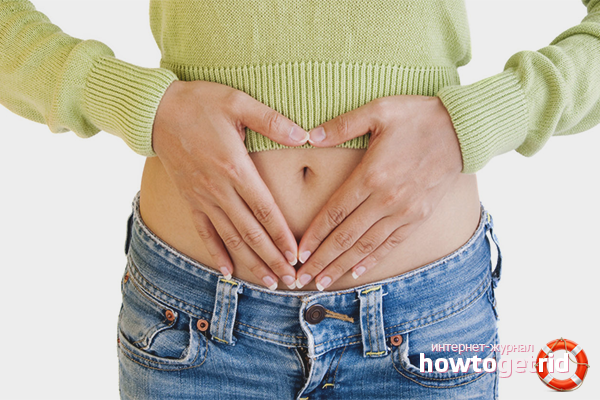
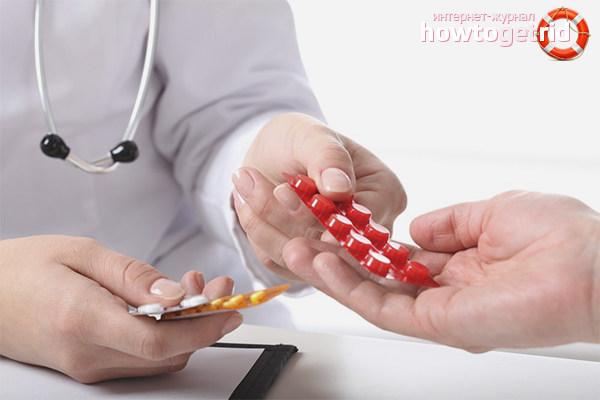
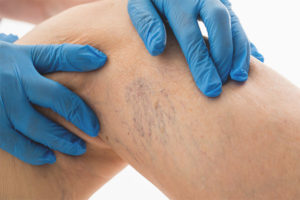
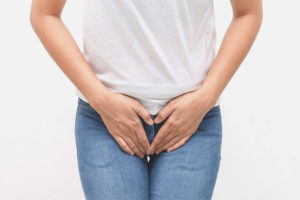
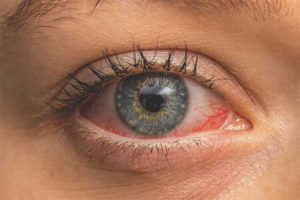

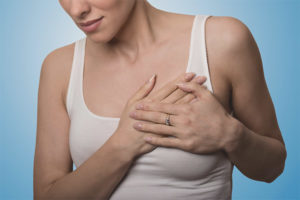
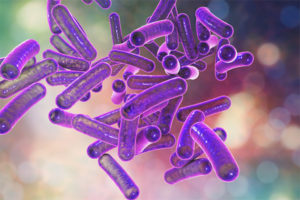
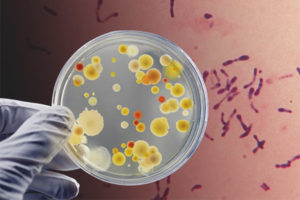

Submit
Very interesting article! Thanks!